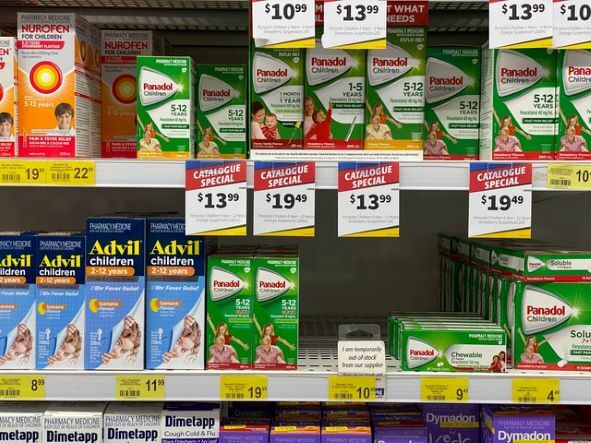As travelers prepare to return to international travel, many will likely forget to pack their over-the-counter and prescription medicines. Many more will forget to check the international rules and regulations for common medicines easily obtained in their home countries—but possibly not allowed overseas.
Trip-takers consistently list “forgetting to pack prescription and over-the-counter medicine” as one of the top 10 travel mistakes, according to the Global Rescue Traveler Sentiment and Safety Survey. Nearly one-out-of-ten travelers have forgotten to pack prescription medicines before a trip despite being one of the most important items needed.
What to bring
Travelers should carry remedies for ailments like colds, pain, swelling, diarrhea, constipation, cuts, and dehydration. Simple illnesses that can be treated with over-the-counter medicine at home can ruin a trip or become more severe and require in-hospital care if you’re not prepared to treat uncomplicated maladies while traveling. Remembering to pack your medicine is important when you take a trip. Equally essential is checking to see whether your medicines, prescribed or over-the-counter, are regulated in the countries you plan to visit.
Many countries require medicines to be transported in original packaging. Prescription and over-the-counter medications without packaging run a greater risk of being confiscated. The U.S. Department of State suggests checking with the foreign embassy of the country you are visiting or transiting to make sure your medications are permitted.

Check for banned medications
For example, the active ingredient in Benadryl, diphenhydramine, is banned in Zambia in over-the-counter products. In Japan, it is allowed only if the amount in a tablet or injection is limited. However, a typical 25-milligram tablet of Tylenol PM in the US exceeds the 10-milligram maximum amount in a tablet you can bring into Japan. Some countries restrict the overall total amount of an active ingredient an individual traveler can legally import, which may impact longer stays, according to a report in The New York Times.
Over-the-counter medicine for traveler’s diarrhea is regulated, too. Pepto-Bismol is not sold in France due to a health scare in the 1970s. Imodium is only sold in France with a prescription.
Check ingredients
If you think you might need these products on your vacation, bring some with you from the US. The documentation you carry should also indicate the generic and chemical names of the active ingredients. Product brand names do not determine permissibility, rather it’s the ingredients list.
Travelers should check their destination rules on over-the-counter medicine, such as cough syrups and some allergy medication because some require a prescription, are strictly regulated, or are banned overseas.

Common Examples of Banned or Regulated Medicines Overseas
- Decongestants: Over-the-counter decongestant medication containing pseudoephedrine, found in Sudafed and Vicks, is banned in Japan.
- Anxiety Medications: Prescription medicines for anxiety or pain—such as ConZip, Ultram, Diastat AcuDial, Diazepam Intensol, Diastat, and Valium—contain tramadol or diazepam, which are commonly prescribed medicines in the US but are strictly regulated in Greece and U.A.E. Anti-anxiety pills require a license in Singapore. Failing to comply with destination requirements for bringing these prescribed medicines into the country may result in arrest, a fine, or imprisonment.
- Sleep Aids and Pain Relievers: Over-the-counter sleep aids, over-the-counter pain relievers, and strong painkillers all require a license in Singapore. In Indonesia, many prescription medicines such as codeine and sleeping pills are illegal. Nigeria and Saudi Arabia both prohibit Ambien, Intermezzo, and other sleeping medications that contain zolpidem. In Singapore, you’ll need a license to legally bring Ambien into the country, according to Reader’s Digest.
- Cough and Cold Medicines: In Qatar, over-the-counter allergy medicines such as cold and cough remedies are controlled substances and must be accompanied by a prescription. Prescription codeine for cough control is illegal in Indonesia.
- Attention Deficit Medicines: If you rely on medications for attention deficit disorder, like Adderall and Ritalin, then you’ll have to leave Saudi Arabia and Japan off your list of destinations. Both countries have a zero-tolerance policy for methamphetamines and amphetamines—the active ingredients in many ADD/ADHD drugs—even if you have your prescription or a note from your doctor, according to a report in Reader’s Digest. In Indonesia, many prescription treatments for ADHD are illegal.
It’s a lot to remember, and the information is always changing. When you are traveling in a strange location and need over-the-counter or prescription medicine, it’s important to have immediate access to a trustworthy resource that can help you. It saves time, prevents mistakes, and alleviates worries. [It is also important] to identify local physicians and pharmacies to help replace a lost prescription or refill one that has run out.
Our No Compromise Clause: We carefully screen all contributors to ensure they are independent and impartial. We never have and never will accept advertorial, and we do not allow advertising to influence our product or destination reviews.


